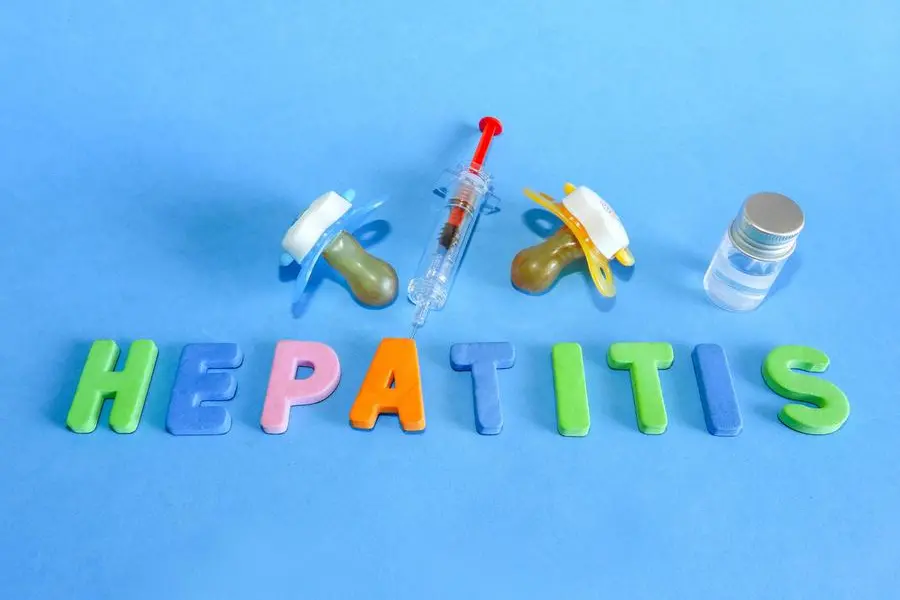PHOTO
Hepatitis B birth dose vaccination offers Africa a fighting chance in battling liver infection and related cancer that kill about 80,000 people on the continent every year.
Chronic Hepatitis B infection develops in 90 percent of newborns who get infected at birth. It is also common in children under five years (30 percent) and is lowest in older children and adults (2-10 percent). Many people can have the infection for years without knowing. Prof Catherine Spearman from the Faculty of Health Sciences at the University of Cape Town, while speaking at a discussion hosted by US medical devices company Abbott on April 22, says babies vaccinated at birth are 3.5 times less likely to become infected by the potentially life-threatening liver infection.
Liver cancer
According to Dr Rachel Beyagira, Uganda’s Ministry of Health Hepatitis focal officer, the Uganda Cancer Institute in 2018 reported that out of the 280 liver cancer cases, 90 percent was attributable to chronic Hepatitis B infection.
On the continent, about 990,000 new Hepatitis B infections occur annually resulting in 80,000 deaths, while nearly 210,000 new infections of Hepatitis C occur causing about 45,000 deaths. Of these it is estimated that 360,000 infants are infected with Hepatitis B each year in sub Sahara Africa.
Although incidence is highest in West Africa where many people live with undiagosed Hepatitis B, the virus is highly endemic in sub-Saharan Africa.
The World Health Organisation’s global targets call for 90 percent reduction in the new cases of hepatitis B and C and 65 percent reduction in deaths by 2030.
Only two percent of Africans living with chronic hepatitis B infection receive a diagnosis, the WHO says, and a mere 0.1 percent receive treatment.
The continent also lags behind the rest of the world in Hepatitis B vaccination. Only about 11 percent of newborn babies receive the birth-dose vaccines, the quickest way to reduce prevalence.
In Uganda, Dr Beyagira says infant vaccination, part of the Uganda National Expanded Programme on Immunisation that started in 2002, has achieved coverage of more than 90 percent.
However, lack of Hepatitis B vaccine at birth dose (HepB-BD) and knowledge gap among health workers have been stumbling blocks to the fight.“Uganda has no HepB BD as yet — the Uganda National Immunisation Technical Advisory Group approved its introduction in April 2022,” she observed.
She said an estimated 3,000 new chronic Hepatitis B virus (HBV) infections occur in Uganda as a result of mother to child transmission.“To meet the WHO target of Hepatitis B prevalence of less than 0.1 percent among five-year-olds by 2030, a comprehensive approach is needed including Hepatitis B virus testing among pregnant women, Hepatitis B birth dose vaccine to all infants within 24 hours of birth and treatment of high viral load mothers,” noted Dr Beyagira.
To eradicate the disease, Dr Janvier Serumondo, director of Sexually Transmitted Infections and Viral Hepatitis Unit at the Rwanda Biomedical Centre, says the target must be vaccination of children.“If we get to vaccinate every single child within 24 hours after they are born, followed by at least two additional doses, we will eradicate this disease and the related cancers,” he said.
Rwanda has been recognised as one of the countries with a successful Hepatitis C elimination plan (2019-2024) and has screened four million people (60 percent of population) and treated 16 percent of all chronic cases.
It has been selected among six countries that will pilot Hepatitis B and Hepatitis C virus elimination validation by WHO.
Elimination is defined as a reduction in incidence — 95 percent for hepatitis B virus and 80 percent for hepatitis C virus infection — and a 65 percent reduction in mortality by 2030.
Rwanda example
Rwanda’s Dr Serumondo says training of 1,500 health care personnel, screening campaigns and decentralisation of hepatitis management to the lowest level of healthcare centres in Rwanda have helped in the fight.
He said by December 2021, 6.03 million people had been screened, 129,549 of whom tested positive. An estimated 59,584 people living with HCV had been diagnosed and 91.5 percent of positive cases treated.“We hope to increase access to HCV testing by introducing the HCV self-testing,” he said.
In 2019, 43 percent of babies born worldwide received Hepatitis B birth dose vaccination within 24 hours of delivery as recommended by the WHO.
It is estimated that 80 percent of global liver cancer patients are in sub-Sahara Africa and Eastern Asia.
The main risk factors for liver cancer are hepatitis B and C viral infections.
In Africa, other risk factors are exposure to aflatoxin, alcohol-induced liver cirrhosis and metabolic syndrome.
Chronic hepatitis B infection can be treated, slowing the progression of cirrhosis, reduce incidence of liver cancer and improve long term survival.
The best way to prevent Hepatitis, however, is by getting vaccinated. The Hepatitis B vaccine is typically given as a series of three shots over six months.
© Copyright 2022 Nation Media Group. All Rights Reserved. Provided by SyndiGate Media Inc. (Syndigate.info).



















